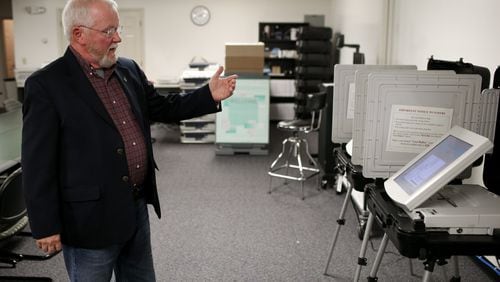The Center for Election Systems at Kennesaw State University has since its founding in 2002 worked solely and exclusively for the Georgia Secretary of State's Office, having helped with every election held in the state since then.
But with the center's contract expiring June 30 and federal officials confirming a breach at the center last month, the Secretary of State's Office this week would not say whether it planned to renew the long-standing agreement or seek a new elections partner.
“Generally, we renew in June of each year,” a spokeswoman for the Secretary of State’s Office said in an email. “If you are asking whether we plan on bidding the contract out, I cannot comment at this time.”
A university spokeswoman declined to comment.
The question over the center's nearly $800,000 annual contract with the state comes a week after the university announced the end of a monthlong federal investigation, saying federal authorities found that an unnamed "security researcher" was behind a data breach at the center and his probing of the system broke no federal law.
A spokesman for the U.S. Attorney’s Office in Atlanta this week declined to comment further on the matter.
The inquiry, however, raised alarms over the security of the state’s election system despite assurances from the Secretary of State’s Office that it believed the researcher never penetrated the center’s core systems. Those systems represent the heart of its work in preparing electronic lists of voters for election officials statewide and maintaining the state’s more than 27,000 voting machines.
The researcher is believed to have contacted the center at least twice — including before last year's presidential election and around March 1 — to notify it about the server's vulnerabilities and apparently draw attention to them.
Georgia Secretary of State Brian Kemp is said to have been furious at university officials for not telling his office about the contacts before last month.







